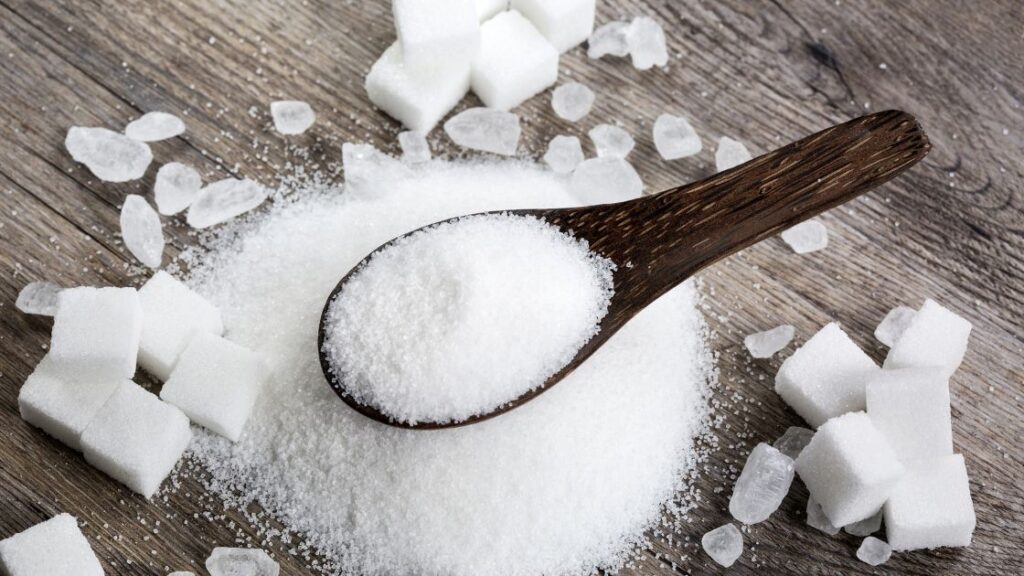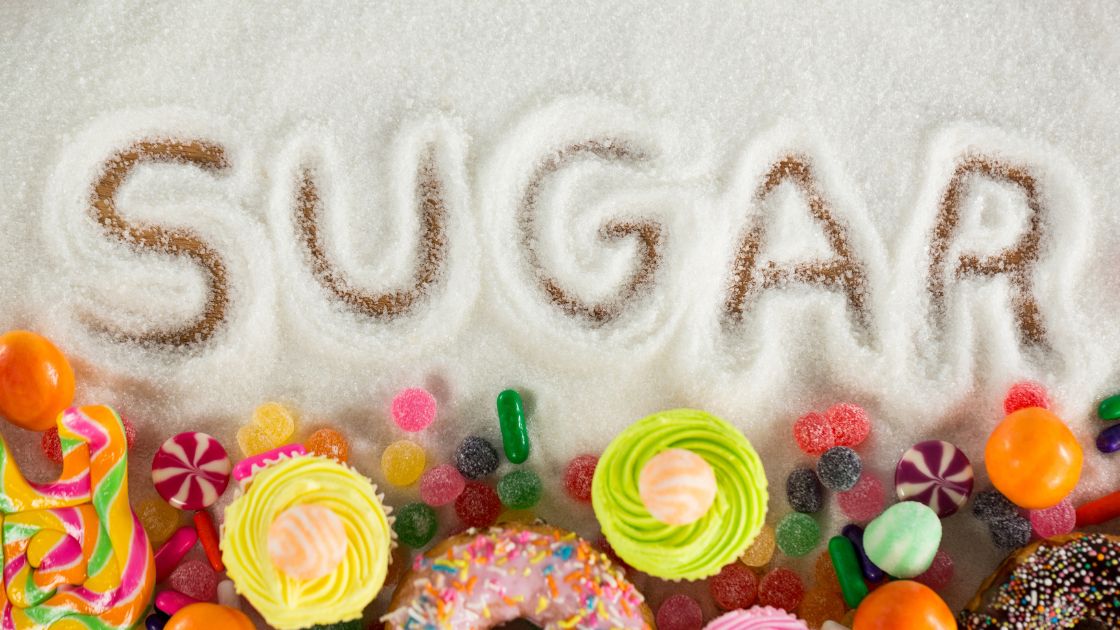Did you know that sugar is bad for your skin? The truth is not an exaggeration. Sugar can be really harmful to our physical appearance and especially to the skin. Continue reading and find out the top 5 reasons why sugar is bad for your skin. You’ll be surprised.
Why sugar is bad for your skin?
Glycation is a natural chemical reaction that happens when blood sugar levels rise over what our insulin can handle. It can be brought on by too much sugar in the bloodstream. Collagen and elastin, which give skin its “elastic” quality, are damaged by glycation.
The dermis becomes drier and less elastic as we age, which leads to wrinkles, flaccidity, and a loss of luminosity. These two proteins lose their strength when they bind to the various types of sugar, and they become weaker. Also, when these fundamental skin components deteriorate, the signs of aging are accentuated.
Our skin ages more quickly the more glycation the body experiences. Due to their difficulty controlling their blood sugar levels, persons with diabetes experience this more frequently than those without diabetes. As a result, the scientific community has shown that people with diabetes typically exhibit indications of aging sooner than those without hyperglycemia.
Other research looked at how old a person was considered to be and connected it to their blood sugar levels. The findings showed that those with greater levels seemed to be older than individuals with lower levels.

Top 5 reasons why sugar is bad for your skin
Sugar intake is not only highly addictive but also linked to a variety of skin conditions and diseases. But this can be avoided by breaking bad habits and getting rid of sugar as much as possible. Know the main 5 reasons why sugar is bad for the skin and detect any of these symptoms if it is happening to you.
Inflammation
Eating sugar causes blood glucose levels to initially rise. The body becomes irritated and acidic as a result of these changes, which can affect your skin and lead to severe flare-ups. If you notice inflammation changes in your body, you should pay attention to the amount of sugar consumption. If the inflammation does not subside or is very pronounced, go to the doctor as soon as possible for a medical check-up.
Rosacea and other rashes
Sugar fermentation and yeast imbalances in the body are linked to rosacea and other rashes. Put a stop to refined meals and yeast, and replace them with more vegetables and fiber.
Sugar encourages the body to produce more free radicals
Healthy cells are at the mercy of free radicals. A diet high in sugar stimulates the production of free radicals and we know how damaging this can be. To neutralize roaming free radicals, eat an antioxidant-rich diet that includes low-sugar fruits and vegetables. Also, including water can be very useful as well as it will keep your skin hydrated.

Sugar ages the skin
Glycation occurs as previously mentioned. This process caused by the consumption of sugar causes the collagen fibers to become harder and less elastic. As a result, you will notice your skin with signs of aging and dryness. Do not wait for this to happen as it could be difficult to recover the elasticity of your skin.
Gases and bloating
Sugar ferments in your stomach and can cause gases and bloat. These stomach upsets can become very annoying and affect people’s daily lives. Food intolerances might emerge in dark circles under your eyes, pimples, and rashes.
How to prevent the impact of sugar on the skin?
Sugar affects your skin but we are not proposing that sugar should be completely abolished from our diets. However, it is suggested to plan our consumption and avoid exceeding the 25 g dose. This dose is the maximum that the body can support without experiencing negative effects. The recommended daily caloric intake of added sugars should not exceed 10%. Here are some tips to help you achieve this goal:
- Know the amount of sugar you consume daily. Read food labels and choose healthier processed foods. Supermarkets typically label their products to make it easy to find the healthiest selections.
- Honey, fruit juices, and alcohol contain a lot of sugar. Learn about the many types of sugar and limit your intake as well.
- Always prefer to consume water before any other drink. Water should not be substituted for carbonated drinks, juices, and energy drinks. Keep in mind that “flavored” waters often hide additional substances.
- Get plenty of rest, your body will thank you. Scientists have discovered that the sleep hormone melatonin can reduce glycation damage by up to 50%.
- Learn to relax and stay calm as much of the time as possible. Cortisol levels rise under stressful conditions, increasing the effects of glycation by 20%.

Eliminating sugar has several benefits. It is advised to stay away from sweets and try to go to bed early. By following these simple tips you can effectively improve the future of the skin and prevent the appearance of aging. Especially in times of stress or hecticness.
What about added sugar?
The sugars utilized in the production of food and drinks are known as added sugars. However, they are also not advised because they add additional sugars to our diets.
They shouldn’t ever account for more than 5% of our daily calories. But the food business makes it challenging and occasionally lacks accurate labeling. It has the same effects on the skin that regular sugar does. So its consumption should also be limited just like table sugar.
Definitely, sugar is bad for your skin
You already know why sugar is bad for your skin so stop consuming too much sugar, your body doesn’t need it. Eliminate flavored and sugary drinks and replace them with water, you will not find a better option than this.
If you want a sweet dessert, choose to eat a piece of fruit. Remember that fruits have fructose and which is equivalent to sugar, so don’t get exaggerated with fruits either. To calculate the amount of sugar you consume, the best option is to visit a nutritionist. They are the most suitable to advise you.

I am a professional health and nutrition writer with extensive experience in the industry. My passion for sharing valuable insights on nutrition and wellness stems from over 15 years of personal training and maintaining a healthy lifestyle. My commitment to continuously educate myself on the latest trends and research in the field allows me to deliver high-quality content that is informative and engaging. My mission is to empower individuals to make informed decisions about their health and well-being through my writing.









